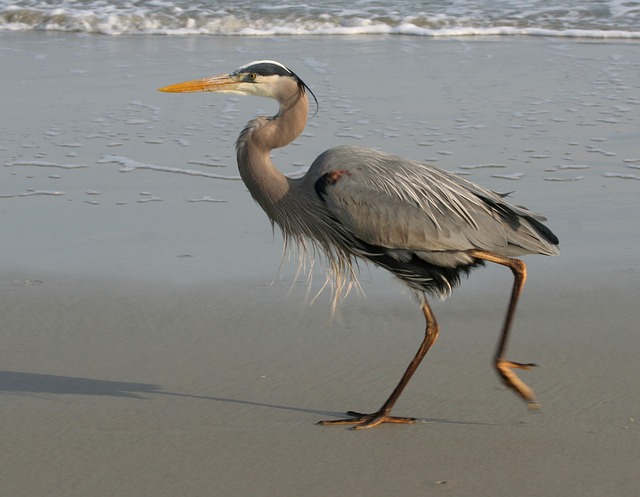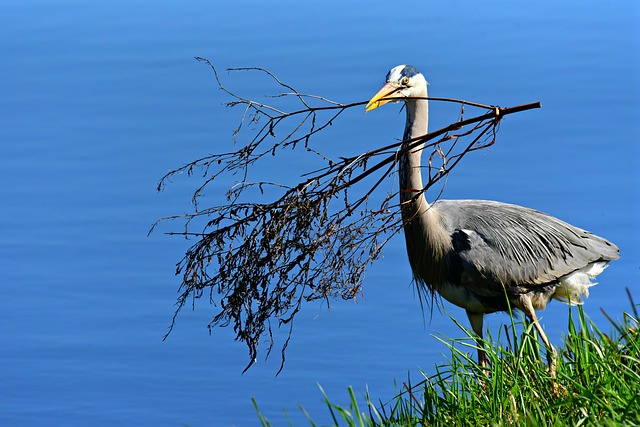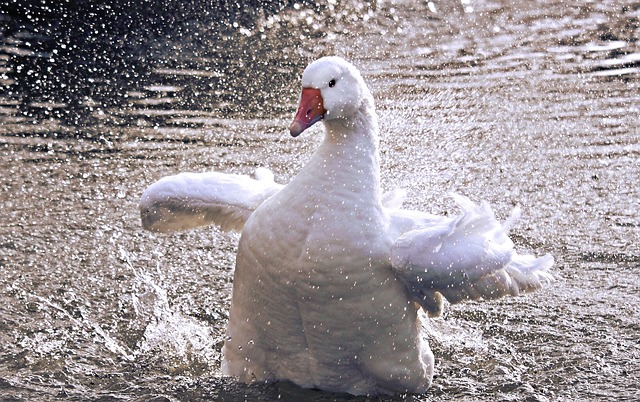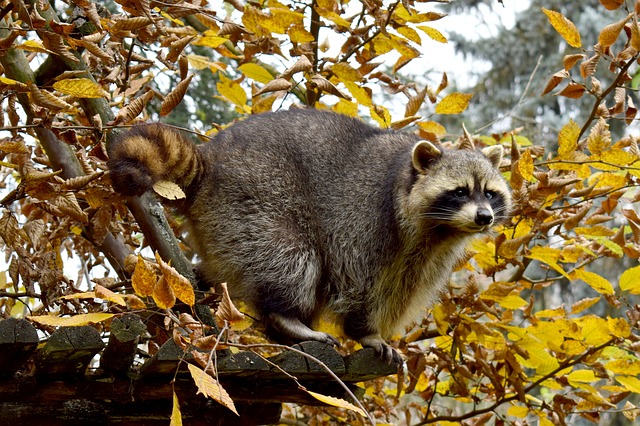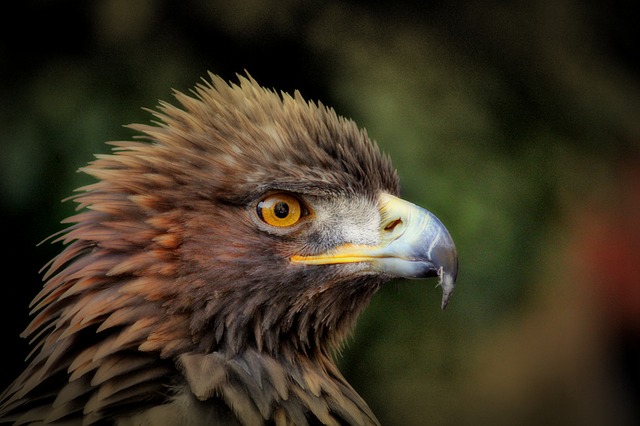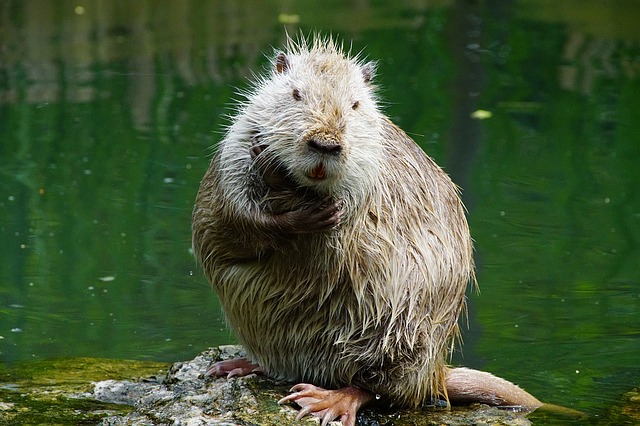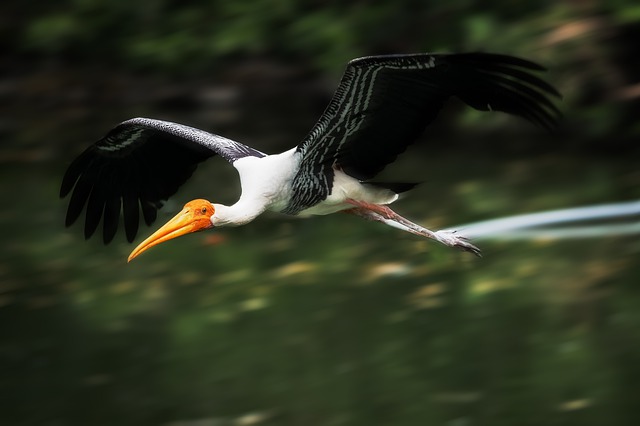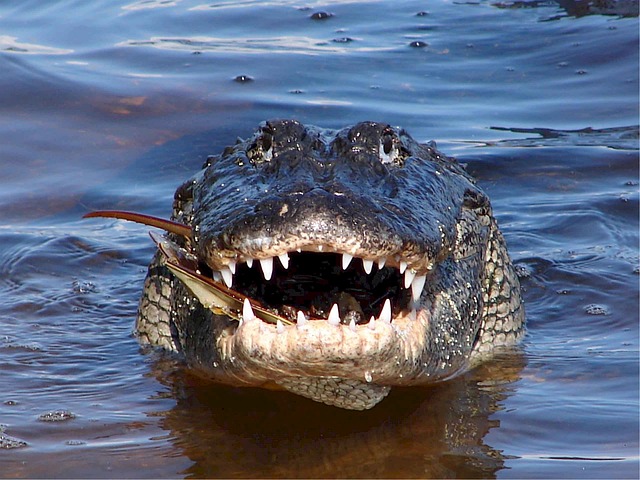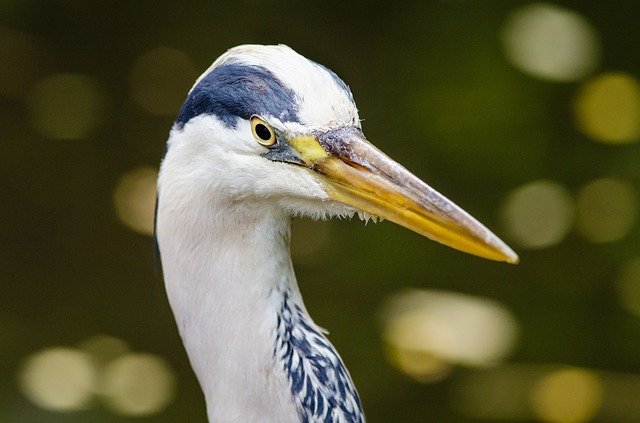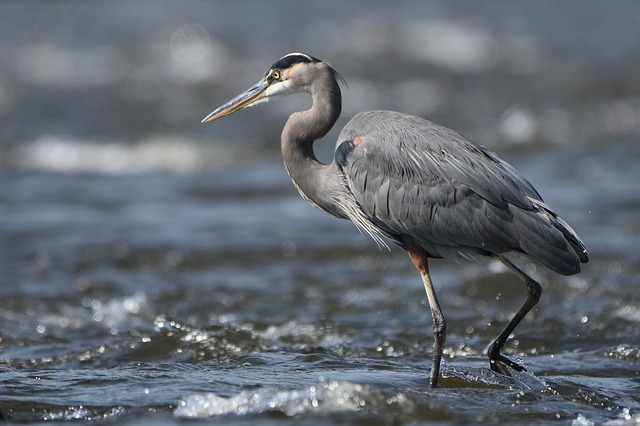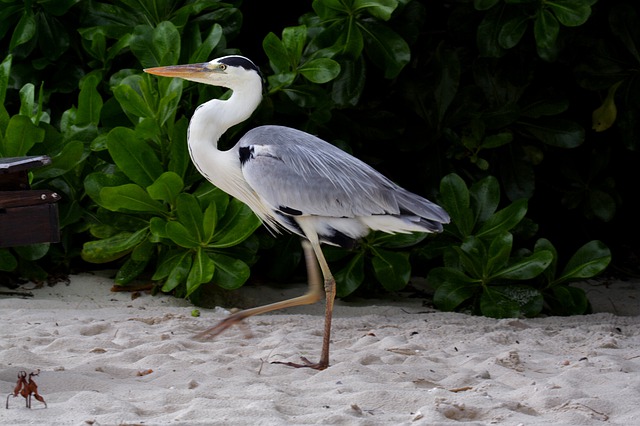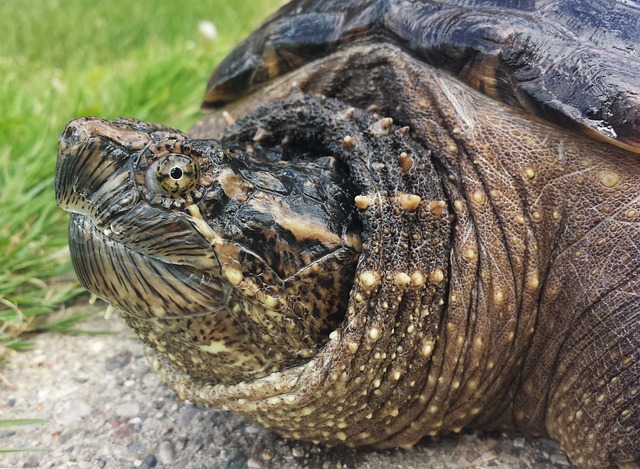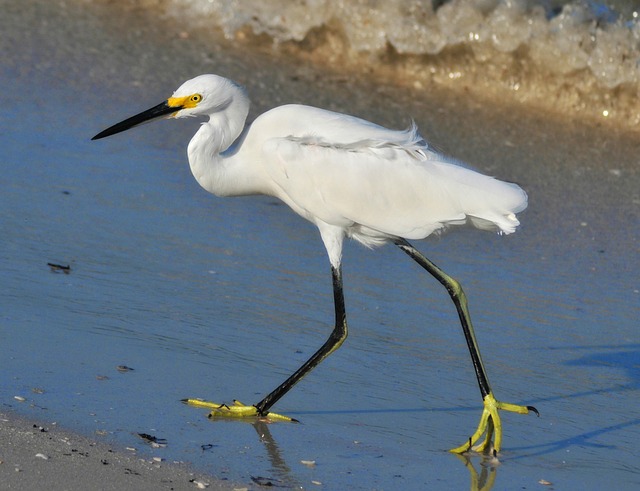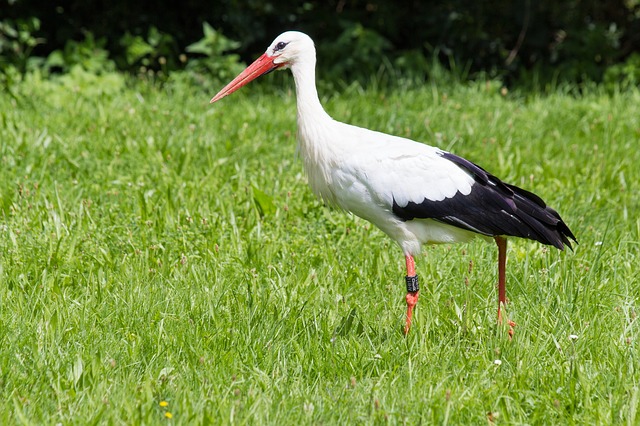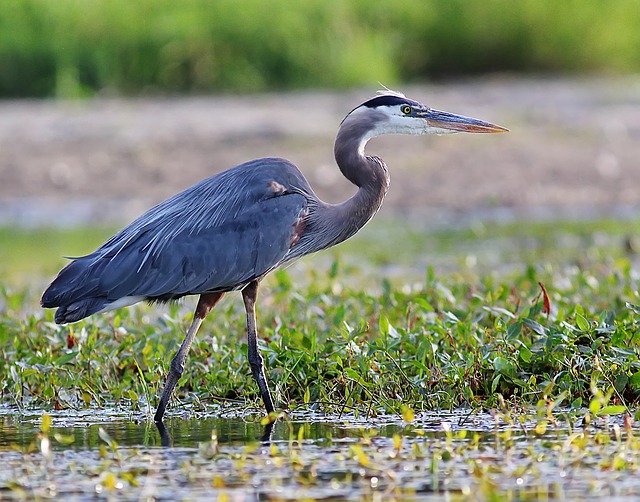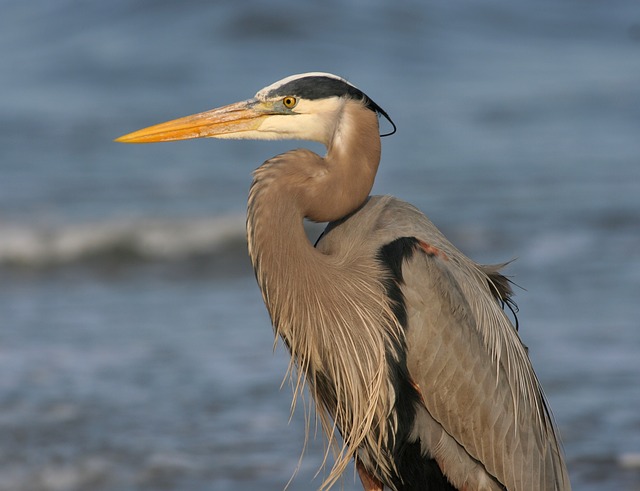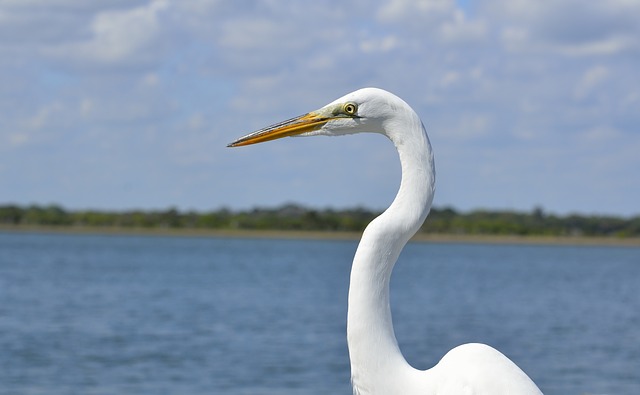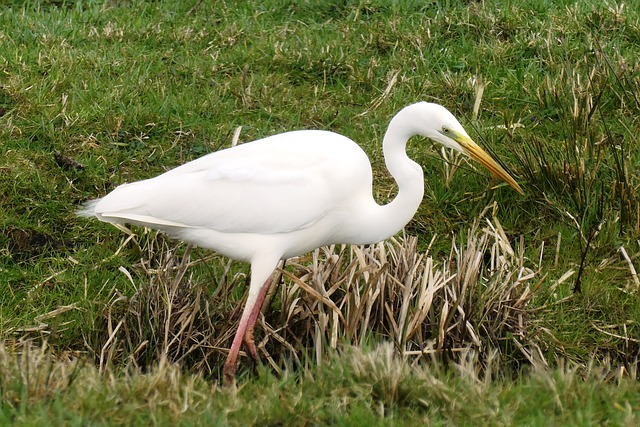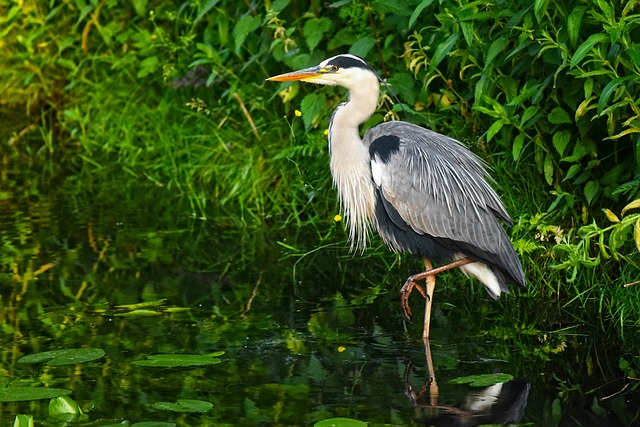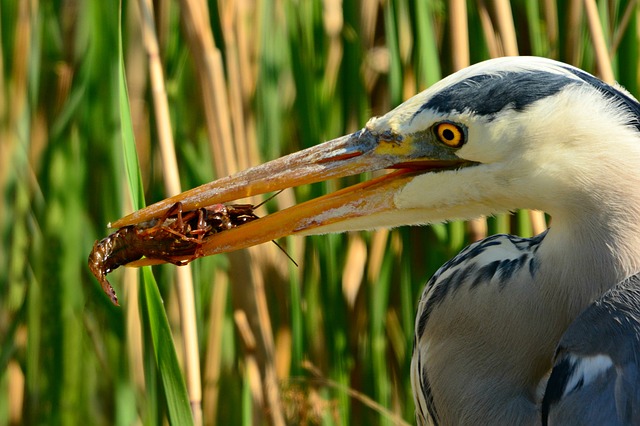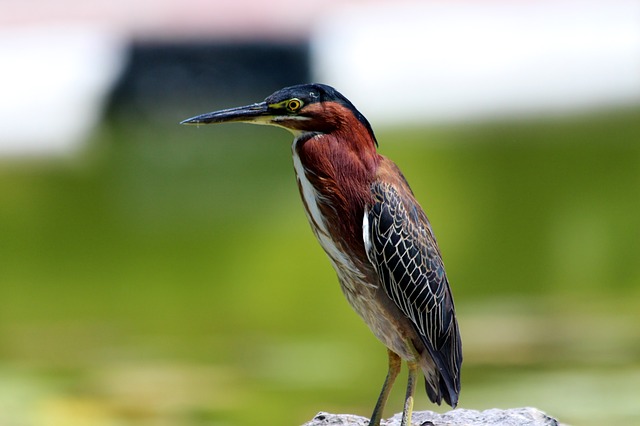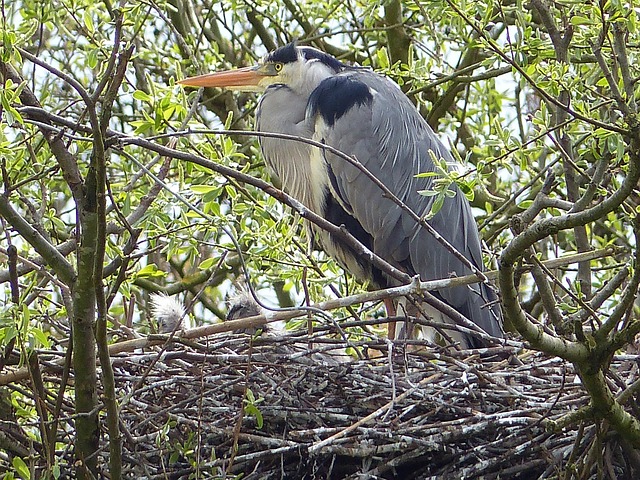
While many of us have seen great blue herons their nesting habits often remain a mystery to most people. That’s because they purposely nest in hard-to-reach places. So where do great blue herons nest? Here’s the answer.
A Colony Nester
Typically great blue herons nest in trees and alongside other herons in large colonies. A colony of herons is known as a heronry but also as a rookery. And these colonies may contain anywhere from a handful of nests to about five hundred.
However, around one hundred and fifty nests is more average. While colonies are normally made up of only great blue herons they may also include other species of herons too.
An interesting great blue heron fact is that while they do prefer to nest in large numbers they only like to eat alone. They are highly territorial over their feeding area. And this actually the reason that heron decoys are so effective when used to keep these fish-eating birds away from backyard ponds.
Where Do Great Blue Herons Nest?
When it comes to location colonies are usually situated close to feeding areas such as lakes and other wetlands. While not many animals eat herons there are several that will eat heron eggs along with very young herons.
Therefore the nests themselves are often in hard-to-reach spots such as on islands and in trees located swamps. Nests are often also built very high up in trees, such as a hundred feet or higher, and usually with many different nests in the same individual tree.
Although not all blue herons do nest in trees, some herons may nest on the ground, on artificial platforms, on the edges of cliffs, on beaver mounds, on channel markers, in mangroves, reeds, or on cacti.
When Do Great Blue Herons Nest?
Great blue herons nest after the winter months which may be anywhere from December through March depending on the climate. Birds in warmer climates generally nest earlier while those in cooler climates nest later.
Nest-Building And Egg-Laying
Herons often return to nest in the same location year after year and sometimes the same nest if it hasn’t been destroyed. Although damaged nests may be repaired and reused. The nests are built by the male heron which collects sticks from trees, the ground, and also other nests.
They are then presented to the female bird which weaves them together. Nests are lined with materials such as dried grass, leaves, moss, pine needles, and twigs which function as cushioning. The total construction can take a few days to a few weeks.
And nests that have been re-used over many years may over time become several feet wide and deep. The female will lay between three to six eggs that are light blue in color. These will hatch in about a month and the chicks will remain in the nest until they are about two months old.
Start Shopping for Birding Supplies!
Goose Pictures
Geese are a group of waterfowl species that belong to the family Anatidae. Not only are they beautiful but there are many interesting things about them. We’ve compiled some of the best goose pictures to show you just how amazing these creatures are. Snow Goose The...
Raccoon Pictures
Raccoons are easily recognizable by their black face mask and ringed tail. And there are many fascinating things about this intelligent nocturnal species. So we’ve compiled some of the best raccoon pictures to show you just how amazing and unique they are. Raccoon...
Eagle Pictures
Eagles are large powerful raptors with sharp talons and beaks. These apex predators are typically at top of the food chain and there are many interesting things about them. So we’ve compiled some of the best eagle pictures to show you just how amazing they are. Bald...
Nutria Pictures
Nutria are large semi-aquatic rodents from South America. In the United States where they were originally imported for the fur industry, they are an invasive species. Despite their pest status, there are many interesting things about them. So here are some of the best...
Stork Pictures
Storks are tall wading birds with long legs and necks. These amazing birds have many fascinating things about them. And we’ve compiled some of the top stork pictures to help show you just how interesting and beautiful they are. White Stork The white stork has a body...
Alligator Pictures
The American alligator is a large predatory reptile that inhabits the southeastern United States. It’s a fascinating animal with many interesting things about it. And we’ve collected some of the best alligator pictures to help show you just how amazing they are....
How Long Do Great Blue Herons Live?
The life expectancy of birds is known to be closely related to their size. So as the biggest heron species in North America, how long do great blue herons live? The average life expectancy for these large birds is around fifteen years. However, surviving their first...
Where Do Great Blue Herons Live?
The great blue heron is considered to be the most widespread heron in North America. So exactly where do great blue herons live? Here’s what you’ll want to know. Great Blue Heron Range The great blue heron is found throughout most of the North American continent. In...
Do Great Blue Herons Migrate?
Do great blue herons migrate? This is something many people wonder about, especially if they’ve seen a heron during the cold winter months. And the answer is both yes and no. Here’s what you’ll want to know. Great Blue Heron Range The great blue heron has a large...
Great Blue Heron Pictures
Few species of birds are as tall, elegant, and attractive as the great blue heron. So we’ve compiled some of the best great blue heron pictures for you to admire and help you to learn more about this amazing bird! Great Blue Heron Head The head of the great blue heron...
What Do Snapping Turtles Eat?
Many people are familiar with the fact that snapping turtles have an incredibly strong bite. They use their strong jaws and sharp beak not just for defense but also for catching food. So what do snapping turtles eat? Here's what you'll want to know. Snapping turtles...
Birds That Look Like Egrets
Egrets are predatory birds that hunt and live in a range of both freshwater and saltwater habitats. These birds are usually white, and have S-shaped necks, long legs, and dagger-like beaks. However, they are often mistaken for several other types of birds that look...
Birds That Look Like Storks
Storks are large wading birds with robust bills and long legs. These tall carnivorous birds are well-known for their wide wingspans and also for building huge nests. However, they are often confused with several other bird types that have a similar appearance. So...
Birds That Look Like Herons
Herons are tall birds with long slender legs and necks. And they often wade in the water when hunting for food. Yet there are several other types of birds that may be mistaken for them. To make things more confusing many of these birds also spend time in the water and...
Great Blue Heron Facts
The great blue heron is named for its size and the grey-blue color on its wings, stomach, and back. This species has many fascinating things about it. So here are the top great blue heron facts. It's The Largest North American Heron The great blue heron is a big bird...
Are There White Herons?
Are there white herons? This is something many people wonder especially after seeing a tall all-white bird. The answer is yes! And here’s a fast introduction to them. A White Color Morph Most people are familiar with the great blue heron, a large predatory and...
Great White Heron Facts
While many people are familiar with the great blue heron, they are often surprised to find out that there’s also a great white heron. There are many things you’ll want to know about this stunning bird. So here are the top great white heron facts. The Great White Heron...
What Animals Eat Herons?
Because of their size and long sharp beaks, it can be hard to imagine that herons have any natural predators. While they do, they definitely don’t have nearly as many predators as most other types of birds. So what animals eat herons? Predators Of Adult Herons For...
What Do Herons Eat?
Great blue herons are often seen slowly wading in shallow water hunting for food. You may have even spotted one of these large birds in your own backyard pond. This leaves many people wondering: “What do great blue herons eat?” And here’s everything you’ll need to...
What Do Green Herons Eat?
The green heron is a secretive and small heron species. What it lacks in size however it makes up for in intelligence. It is particularly well-known for how it uses its smarts when hunting for food. So what do green herons eat? Read on to find out. Meet The Green...
